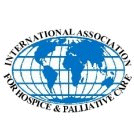|
Announcements
ENSURING ACCESS TO PAIN TREATMENT MEDICINES IS VITAL AND POSSIBLE, SAYS the International Narcotics Control Board
This is an important press release from the United Nations Information Service:
www.incb.org/pdf/annual-report/2007/en/04-press-release.pdf
------------------------------------
Annual AIDS Candlelight Memorial Program
On May 18th of this year, the Global Health Council will commemorate the 25th Anniversary of the historic Candlelight Memorial in communities around the globe. The Candlelight Memorial was one of the first public HIV/AIDS events in the world and today is one of the world’s largest movements led by civil society against the disease. The purpose of the Candlelight is to remember the lost and raise awareness, as well as to educate, foster community dialogue, improve skills for community mobilization, and move communities to action.
The Candlelight Memorial takes place every third Sunday in May, and last year was led by some 1,200 volunteer Candlelight Coordinators in 119 countries who hosted some 2,000 vigils from gatherings beneath a tree to nation-wide events for their communities. When coordinators register, they receive a manual, posters, and other information, and the Council posts their memorial location online.
It would be a tremendous help if members of the International Association for Hospice and Palliative Care would get involved as Candlelight Coordinators and host memorials for their communities. An application to become a Candlelight Coordinator follows at:
URL:http://www.candlelightmemorial.org/images/pdf/2008_flier.pdf
Current and past partners include groups such as the ONE Campaign, the Peace Corps, Rotary International, InterAction and Save the Children.
To learn more about the Candlelight Memorial, or to register online, visit www.candlelightmemorial.org
Global participation is critical to ending HIV/AIDS. Please let me know if you have any specific questions about the Candlelight.
Thank you for your consideration.
Sincerely,
Sarah Albert
Public Outreach Director
Global Health Council
1111 19th Street, NW Suite 1120
Washington, DC 20036
P: 202-833-5900 x3220
F: 202-833-0075
salbert@globalhealth.org
------------------------------------
EPEC-India
Dear friends,
As of this morning, the EPEC-India Curriculum for palliative and end-of-life care is now posted on www.epec.net The complete curriculum can be downloaded by anyone in the world. This is a major step towards opening the doors a little more to improving palliative care in India. This is the first time that such extensive material developed specifically for India has been provided free of charge to anyone through the web. If you click on the EPEC-India page http://www.epec.net/EPEC/Webpages/epecindia.cfm, you will see a link at
the top that says "Download Curriculum" which will lead you to the list
of modules.
The direct link is http://epec.net/EPEC/Webpages/curriculum.cfm
Thanks.
Vivek Khemka, MD, AB
Med Geriatric, Palliative Medicine
Cooper Cancer Institute
U of Medicine and Dentistry of New Jersey
Robert Wood Johnson Medical School
New Jersey
------------------------------------
The International Observatory of End of Life Care
Dear colleague,
The International Observatory on End of Life Care has posted a country report of hospice-palliative care development in Malaysia which may be found at:
http://www.eolc-observatory.net/global_analysis/malaysia.htm
Malaysia’s first hospices were founded in Kuala Lumpur and Penang in 1992. The following year, a service began in Queen Elizabeth Hospital, Kota Kinabalu, that developed into a public health and NGO collaboration which gained government support and became a model for the country.
Currently, at least 90 organisations provide 110 palliative care services. Among these providers, 22 NGOs account for 33 services, 20 of which are home care programmes. Twenty government hospitals have established an inpatient palliative care unit; others have formed palliative care teams. The Ninth Malaysia Plan (2006-2010) includes targets and action plans for palliative care development and the first government sponsored individual has undergone specialist training; three more are following the same route. The recognition of palliative medicine has signaled a new career pathway for doctors and discussions are now taking place aimed at incorporating palliative care education into medical and nursing curricula, supported by NGO tutors.
Anthony Greenwood
Information Officer
International Observatory on End of Life Care
Institute for Health Research
Lancaster University
Lancaster LA1 4YG
Tel: +44 (0)1524 594976
Click here to view the International Observatory on End of Life Care Web Pages.
Top of Page
|




